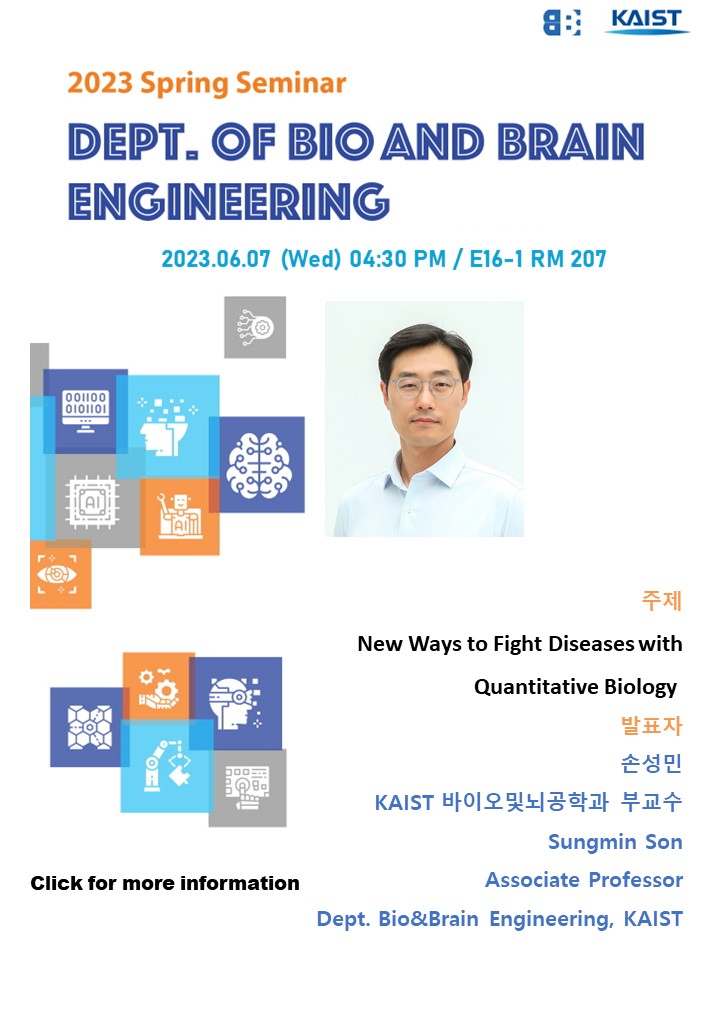| 연사 | 손성민 교수 |
|---|---|
| 소속 | KAIST 바이오및뇌공학과 |
| 일시 | 2023.06.07, PM 4:30~5:45 |
| 장소 | E16-1 양분순빌딩 #207 |
New ways to fight diseases with quantitative biology
The Son lab, established at KAIST BBE just six months ago, is dedicated to pioneering innovative methods for pathogen and human disease detection. We utilize and engineer nature's immunity to create unique molecular and cellular sensors applicable for both clinical and point-of-care applications. Our interdisciplinary approach combines cell and molecular engineering, advanced imaging techniques, and high-throughput analyses. In this presentation, I will discuss two primary areas of our ongoing research: CRISPR diagnostics and immune cell sensing.
Our research on CRISPR diagnostics centers on the bacterial immune system component, CRISPR-Cas13, which has evolved to detect foreign RNA. This RNA sensor holds potential for a convenient and programmable in-vitro RNA sensor. I have previously demonstrated that Cas13a detection can function without necessitating nucleic acid amplification, and it can interface with a smartphone-based reader for a simple, quantitative, point-of-care SARS-CoV-2 detection. Currently, we are developing a microfluidic high-throughput platform to enhance Cas13's sensing capabilities further. Simultaneously, we aim to create an assay that can detect over ten viruses at once, in the simplest manner conceivable, with the intent to address global health challenges.
We are also actively engaged in uncovering and applying a novel immune cell sensing mechanism. Although the individual receptor activation of immune cell-cell contact is well understood, the coordinated sensing by a group of cell surface proteins and glycoproteins remains elusive. I have previously developed an imaging method capable of measuring cell surface protein height with 1-nm resolution and demonstrated that molecular height significantly influences immune cell sensitivity to its target cell. At the Son lab, we are developing innovative measurement capabilities and devising a cell-cell interface engineering method to understand, enhance, and engineer immune cell sensing, in pursuit of next-generation immunotherapy.
* Keywords: CRISPR-diagnostics, Immune cell sensing







